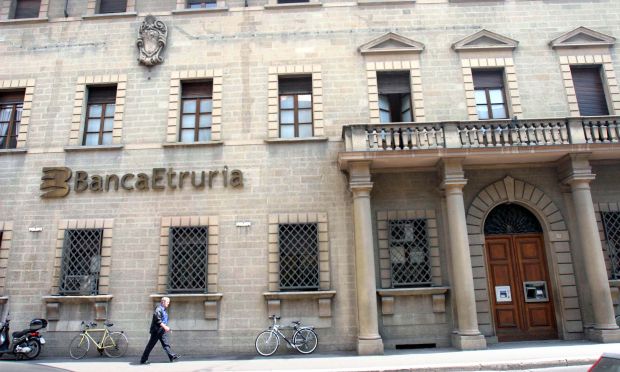There’s a small village in the Tuscan backcountry, where an entire community of 300 families found themselves one day without their life savings. They discovered that an official at the local bank — a trusted landmark of the community — had gotten them involved in a round of high-risk investments, which ended in the worst way. Of course, that official had not suddenly become wicked, he was just trying to do his best at his work because, for years, his efficiency had been contractually measured according to how many financial products he was able to sell.
Until 2009, when a bank invited a consumer to invest in subordinated bonds, it was obliged to communicate the probabilistic scenarios of the financial instrument. But the crisis years came, and the Bank of Italy mandated a stronger recapitalization of banks. With traditional institutional investors fleeing the market, banks were pushed to flood the public with financial products, and the National Commission for Companies and the Stock Exchange (CONSOB) eliminated the mandatory disclosures and made it optional. Later on, in 2011, it even eliminated optional communication.
To give just one example, those citizens who invested in subordinated bonds of the Banca dell’Etruria e del Lazio in October 2013, were not informed of a 62.7 percent probability of losing half of the capital.
There is European legislation requiring banks to profile their customers as to their knowledge and willingness to invest in financial instruments. But this was easily circumvented, making it appear, in one recent case, that 75 percent of the consumers were financial connoisseurs.
The green light for banks to plunder their customers has been mirrored for credit issuing practices by the same institutions, which, in many cases, brought them to bankruptcy.
As always, after every abscess, the first reaction is for the executives to blame managers, and vice versa, followed by popular outcry for drastic measures to ensure that it never happens again. And in the end, the scandal is reclassified under the category of “bad apple in a healthy tree.”
But the data tell us that things are not nearly so. In the last seven years, citizens have invested over €35 billion in subordinated bonds, while the four infamous banks are rescued by government measures. To date, there are 12 commissioned banks for the same reasons.
To get an idea of what the business of asset management has become structurally, just look at what CONSOB writes (Case 20638/14) on the activities of the Italian Post Office, which is the company that provides investment services to the simplest of investors: “sale of products in a conflict of interest with the BancoPosta network, commercial structures pressed to raise volumes and incentives linked to the budget, improper marketing methods, few and optimistic profiling of clients that allowed 74.5 percent of them to subscribe to complex securities (such as options on underlying securitized certificates).”
We are therefore faced with a “systemic” crisis, which, beyond the specific situations, can only be tackled with systemic proposals.
The first of which must be a law providing the clear separation between commercial banks and investment banks, starting with an immediate prohibition of sales of financial products at the counters. Second, we need a drastic change of course on the transformation of banks into Société Anonyme and real reform to regulate the territoriality, through the participation of workers and local communities in management. The third change can only relate to the reversal of the privatization of the Italian Post Office and the transformation of the Cassa Depositi e Prestiti (Savings and Loans Association). Fourth, we need measures in favor of ethical savings and dissemination of all the experiences, even self-organized, that go in that direction.
Because either there is a widespread mobilization of measures to draw a new society based on mutual cooperative aid, or nothing will change and nobody will save us from a model that drowns us all in competitive solitude.
via Attac Italy
–> Originally published in Italian at il manifesto on Dec. 18, 2015






